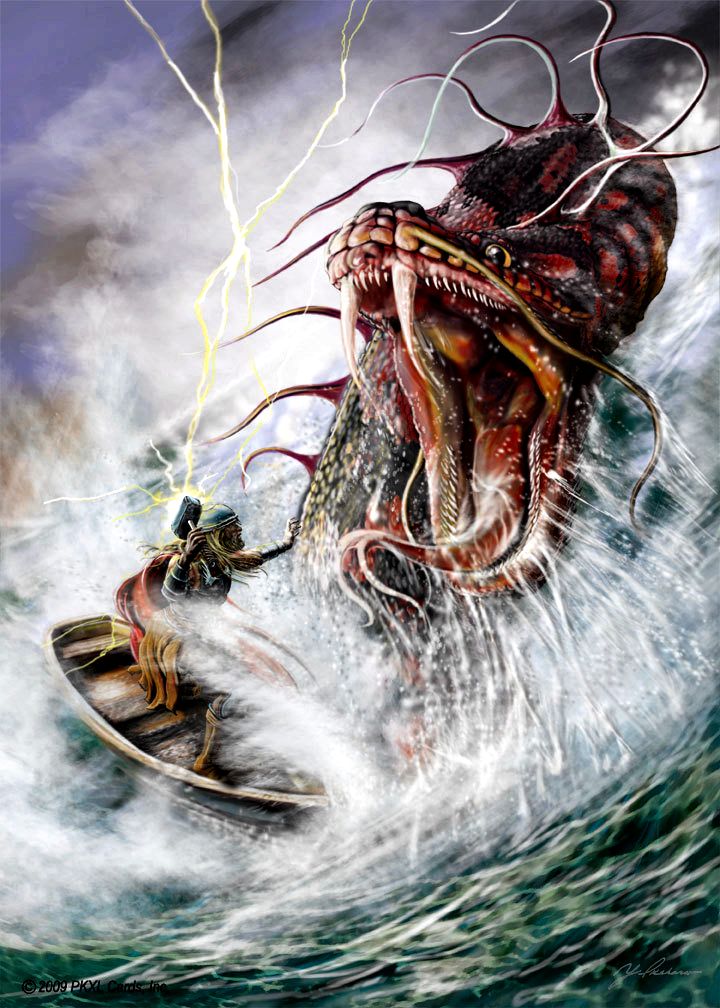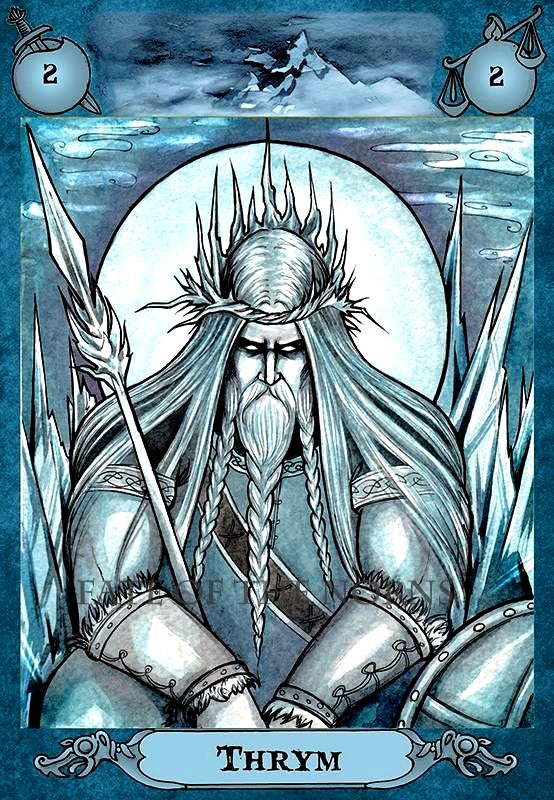
Thor, a completely entertaining and surprisingly funny thrill ride of the movie, is the type of motion picture legend in which the only word that really appears to suit is "epic."
Director Kenneth Branagh, most widely known for getting Shakespearean classics for example Henry V and Town towards the giant screen, is pitch perfect together with his celluloid reimagining from the superheroic story of Thor, God of Thunder.
The Norse god was initially brought to popular culture by Stan Lee and Jack Kirby within the pages of Marvel comics in 1962. The genesis from the Thor legend, however, dates a little further back — about 1,961 years further back, more specifically.
Before he grew to become a comic book super hero and became a member of Ironman, the Hulk and Captain America as part of Marvel’s Avengers, Thor was immortalized through the Vikings among the mightiest and many venerated Norse gods the very first recorded reference to the hammer-wielding deity was really through the Roman historian Tacitus in 1 A.D.
Branagh’s Thor depicts the eponymous character as a kind of alien-god-super hero hybrid, following neither the Marvel narrative nor the traditional myth with any apparent devotion.
For audience people whose memory from the comic or ancient Thor legends can be a tad hazy, the road between myth and moviemaking is tough to discern.
The show, however, is really as much about ideas of theodicy, freedom, and also the relationships between fathers and sons. Here is a brief primer on Norse mythology that can help separate the gods in the (super)humans:
Thor
In Norse mythology, Thor is most frequently referred to as a hulking, mighty, hot-tempered god with red hair and red beard. Additionally to to be the god of thunder, he’s also, variously, credited with to be the deity accountable for lightning, storms, oak trees, strength, destruction, fertility, healing and also the general protection of mankind.
His primary divine weapon is a big hammer known as Mjollnir, but he’s also outfitted having a belt, mitts along with a staff which possess special forces. The motion picture Thor (Australian actor Chris Hemsworth) merely has his hammer, that they misplaces (in other words, his father, Odin, misplaces for him) because he is exiled in the celestial Asgard to Midgard (Earth). Within the film, he sets about reclaiming his hammer by showing themself worthy in the father’s eyes.
The Norse Thor travels inside a chariot pulled by two magical goats and it is married towards the golden-tressed goddess Sif. Within the film, Thor is definitely an qualified bachelor whose love interest rates are a fetching human astrophysicist performed by Natalie Portman. While Sif does appear, she’s a brunette and much more someone in crime (she battles alongside Thor along with a trio of other gods) compared to romance.
Hemsworth’s Thor is much more funny than terrifying, as the Thor of Scandinavian legend were built with a significant flare for that homicidal rather than discovered his softer (possibly more "mortal") side while he did not get one.
Odin
Referred to as "All-Father," Odin is easily the most effective god and Thor’s father. Within the film (portrayed by Anthony Hopkins) he rules Asgard with great knowledge — he’s just one eye, getting traded another, based on myth, towards the Fates to be able to drink in the "well of knowledge." Hopkins’ Odin also offers a particular tenderness that eludes the Norse Odin.
 Hopkins’ Odin reaches occasions more Cosby than cosmic in the relationship together with his difficult sons, Thor and Loki, who both of them are vying to achieve success him. Odin is married, in legend as well as on-screen, to Frigga, who’s revered by all because the mother of gods and also the queen from the heavenly realm.
Hopkins’ Odin reaches occasions more Cosby than cosmic in the relationship together with his difficult sons, Thor and Loki, who both of them are vying to achieve success him. Odin is married, in legend as well as on-screen, to Frigga, who’s revered by all because the mother of gods and also the queen from the heavenly realm.
Odin is easily the most compelling from the gods in Branagh’s film, ruling with tough love greater than an iron fist. He’s completely beneficent, yet fully embodies his Norse personality like a fierce and victorious warrior. Hopkins’ Odin has a lot of characteristics from the Christian God (elegance, justice, whim, love) compared to Norse deity.
Loki
One critic described Loki, the Norse "trickster" god adopted into Odin’s family as Thor’s "bloodstream brother," as "a mythologically epic discomfort within the ass." That certainly describes the Loki portrayed within the film, in addition to a pretty fair assessment from the general picture colored of him in Norse mythology.
Based on the film, Loki would be a child of "frost giants," the archenemies of Asgard, whom Odin saved being an orphan. Odin raises Loki as their own and does not reveal his true paternity before the roots of Loki’s jealousy and troublemaking are immovable.
Within the ancient myth, Loki is really a frost giant, however the All-Father brings him into this fold inside a debt of gratitude. The ancients (and also the film) believed Loki to become a troublemaker along with a shape-shifter who wreaks havoc wherever he goes. He famously cut the (magically effective) hair of Thor’s wife Sif, and slayed Baldr, another of Odin’s sons and also the "god of sunshine,Inch famous for his pretty-boy looks and gracious attitude.
Baldr does not come in the Thor movie, but possibly he’ll make a look and feel within the follow up which will surely follow. (Word towards the wise: Stay with the credits in the finish from the film.) And when he is doing, for that passion for gods, please cast Kaira Pitt.
This column seems via Religion News Service.
Resourse: http://huffingtonpost.com/cathleen-falsani/
First Norse God Temple Since Vikings Age Built In Iceland
Video COMMENTS:
Nyctohylophiliac: The more Europe gets back to it's Pagan roots and rejects this Semitic monotheistic bullshit the better.\n\nSunday — Sun's day\nMonday — Moon's day\nTuesday — Tiu's day\nWednesday — Woden's day (Odin's Day)\nThursday — Thor's day\nFriday — Frigg's day (Freya's day)\nSaturday — Saturn's day\n\n!
Nick Westendorf: Not even, the fact that Europeans have been seeking out their deeper connections means the TRUE "Roots" are still way deeper and more meaningful than the weak grafting of Christianity, especially when people see that nearly EVERYTHING in Catholicism and Christianity came from THEIR cultural ancestors, (like the Trinity, is actually the Hammer Prayer, to Odin, Thor, Baldr and Frig,, and Christmas is all Germanic / Norse Paganism ) and they were way more badass than the more recent Christian ancestors, they will reject the more recent in favor of the much older, and will resent Christianity for the imposter it is.
Nick Westendorf: That was only used AFTER Christianity was created, people used many different methods of telling time before then. This means nothing. Christianity is still fraudulent.
GreatestAlive29: Thor > Jesus
Bill Penn: Thor is mythical…Jesus is the Son of the Father…the Messiah…unfortunately we've been so weakened and corrupted by Judeo-Masonry that we can no longer defend ourselves….spiritually, financially and now even physically…
Arthur Fonseca: Well, Jesus promissed the end of all wicked people. Thor promissed the end of the ice giants. I don't see any ice giants around…
BARTHEZ: Odin promised that, not Thor.
Feel the Stirn: Except none of the Norse gods ever promised the "end of all ice giants". \n\nThey did promise the end of everything though
Sheogorath: False god. The only gods you should worship are the Daedric princes.
Nathaniel McGuire: lol


